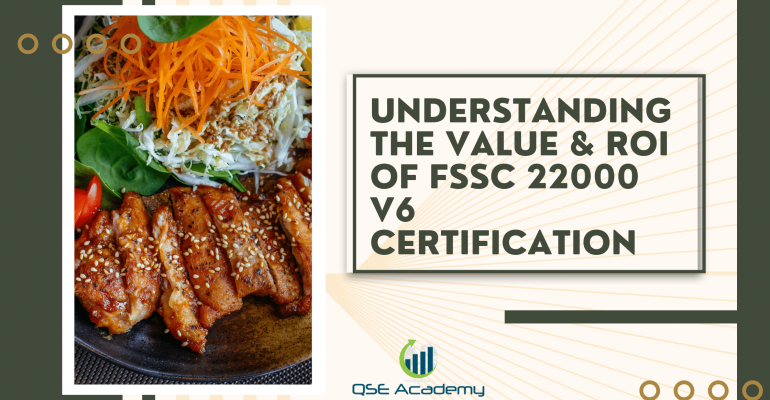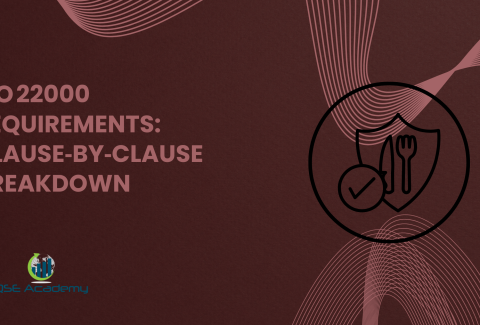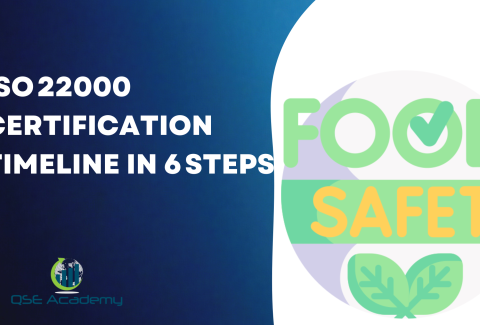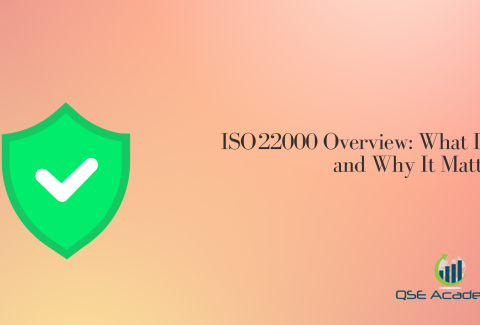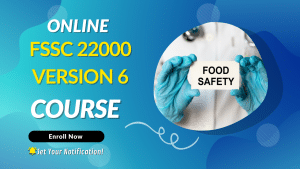Understanding the Value & ROI of FSSC 22000 V6 Certification
Last Updated on December 26, 2025 by
Understanding the Value & ROI of FSSC 22000 V6 Certification
Is It Really Worth It? Let’s Talk ROI.
Let’s be honest—FSSC 22000 V6 certification isn’t cheap. There are audit fees, documentation overhauls, staff training, and plenty of time investment. So it’s only natural for business owners and managers to ask, “Is this actually worth it?”
And you know what? It’s a fair question. I’ve helped dozens of companies—from local bakeries to global food processors—navigate this exact decision. Some needed help justifying the cost to their board. Others wanted to know if certification would help them land that big retailer or break into a new market.
Here’s what I’ve learned: when done right, FSSC 22000 V6 delivers real, measurable value—not just in compliance, but in growth, reputation, and operational strength.
In this article, we’re going to look past the price tag and dig into the true return on investment (ROI) of FSSC 22000 certification. Whether you’re preparing your first audit or trying to justify renewal, this breakdown will help you make a confident, informed decision.
What Is FSSC 22000 and Why It Matters to Business Performance
Let’s start with the basics.
FSSC 22000 is a globally recognized food safety certification scheme, fully benchmarked by GFSI (Global Food Safety Initiative). It combines ISO 22000 with specific prerequisite program (PRP) standards based on your food sector—making it both rigorous and versatile.
But here’s why it really matters: major retailers, manufacturers, and supply chain partners are increasingly requiring it. If you want to be taken seriously in today’s global food market, certification isn’t optional anymore—it’s a competitive necessity.
FSSC 22000 tells the world:
- Your processes are controlled and verified
- Your risks are understood and managed
- Your team takes food safety seriously
It’s not just about passing an audit. It’s about proving you’re a trustworthy supplier, ready to meet international demands.
Breaking Down the ROI: Tangible vs. Intangible Returns
When we talk ROI, it’s easy to get stuck on the money side. And yes, that matters—but it’s only one piece of the puzzle.
Tangible ROI:
- Increased market access: Many buyers won’t even consider you without certification.
- Audit efficiency: One certified system reduces the need for multiple customer audits.
- Reduced risk: Lower chances of recalls, legal issues, or fines.
- Operational savings: Standardized processes = less waste, better quality control.
Intangible ROI:
- Improved brand trust: Certification builds credibility with both customers and consumers.
- Team alignment: Everyone understands their role in food safety—less confusion, more accountability.
- Stronger food safety culture: Your team starts thinking proactively, not reactively.
- Strategic positioning: Being certified sets you up for bigger contracts, partnerships, or investment opportunities.
ROI isn’t just about recovering cost—it’s about creating value that supports your business goals, long term.
Cost Offsets: Where Certification Saves You Money
Yes, there are upfront costs. But here’s where you start to recoup them—often faster than expected.
- Fewer customer audits: Once you’re GFSI-certified, buyers stop sending their own auditors. That saves time, travel, and disruption.
- Lower non-compliance costs: A strong system catches issues before they become recalls or legal problems.
- Insurance benefits: Some providers offer lower premiums for certified facilities.
- Better inventory control: Documented procedures reduce product loss from waste, mislabeling, or improper storage.
I’ve seen one mid-sized ready-to-eat company save over $20,000 a year just by reducing waste and eliminating redundant audits. The certification paid for itself in year one.
Market and Customer Access: Unlocking New Opportunities
One of the most overlooked benefits? Access.
Once certified, you’re eligible to supply major retailers, global distributors, and export markets that demand GFSI-recognized certification. That opens doors.
Here’s a real example:
A small condiment manufacturer I worked with got certified in 2022. Within three months, they landed a supply contract with a European grocery chain that previously wouldn’t even take a meeting. That deal doubled their annual revenue—and it wouldn’t have happened without FSSC 22000.
So yes, certification costs something. But it’s also your ticket into rooms you’ve never been invited to before.
Internal Benefits: Culture, Efficiency, and Staff Performance
Beyond the business wins, certification strengthens your operation from the inside out.
You’ll see:
- Clearer roles and responsibilities
- More consistent training
- Fewer “we’ve always done it this way” gaps
- Better employee confidence during audits and inspections
A strong food safety system reduces finger-pointing, miscommunication, and reactive firefighting. It creates a culture where people understand the why, not just the how.
That’s good for morale. And it’s great for business.
Long-Term Payoff: Sustainability, Growth, and Reputation
This isn’t just a short-term win.
FSSC 22000 certification strengthens your long-term growth strategy by:
- Enhancing your reputation in the eyes of regulators, investors, and customers
- Increasing your value in acquisitions or expansion plans
- Supporting grant applications and government contracts
- Building operational maturity that scales with your business
In short: you’re future-proofing your brand.
I’ve seen certified businesses chosen over uncertified competitors even when their pricing was higher—because buyers trusted the systems behind the product.
Pro Tips from the Field
Pro Tip 1: Start tracking your internal incident costs before certification—complaints, downtime, waste. That gives you a baseline to measure improvement and ROI.
Pro Tip 2: Use your certification in proposals and marketing materials. It builds instant credibility and helps you stand out.
Pro Tip 3: Check with your insurance provider after certification. Some offer premium reductions or better coverage terms.
Pro Tip 4: Don’t evaluate ROI just in Year One. Look at 3–5 years—it often increases as your system matures.
Common Mistakes and FAQs
Mistakes to Avoid
- Looking only at cost—not value
- Failing to track improvements post-certification
- Treating certification like a “one and done” project instead of a strategic investment
- Not using certification to strengthen sales and customer engagement
Frequently Asked Questions
Q1: Can small businesses still get good ROI from certification?
Absolutely. In fact, small and mid-sized companies often see quicker returns because their improvements are more immediate and visible.
Q2: Is FSSC 22000 better than ISO 22000 for ROI?
If you need to meet GFSI-recognized requirements or sell to global retailers, yes—FSSC offers broader market value.
Q3: How do I explain ROI to my leadership team?
Frame it in terms of risk reduction, market access, cost savings, and long-term positioning. Don’t just focus on audit fees—highlight what certification enables.
Certification Is an Investment—And a Smart One
FSSC 22000 V6 certification is more than a piece of paper. It’s a business asset that delivers real, ongoing value across operations, brand trust, and growth potential.
Yes, there’s effort involved. Yes, it takes resources. But when you look at what it enables—from smoother audits to new sales opportunities—it becomes clear: the return far outweighs the cost.
Ready to measure your own ROI? Download our free FSSC 22000 ROI Calculator, or book a strategy call to map out exactly how certification could impact your business financially and operationally.
You’re not just getting certified. You’re building a better business.
Whether it’s ISO 9001, ISO 22000, or the cosmetics-focused ISO 22716, I’ve spent my career I’m not here to call myself an expert—I prefer “enthusiast” because I truly love what I do. When I’m not writing about standards, you’ll probably find me playing Piano 🎹, connecting with people, or diving into my next big project💫. I’m an engineer specialized in the food and agricultural industry
make ISO standards less intimidating and more approachable for everyone.
turning complex jargon into clear, actionable steps that businesses can actually use.
There’s something incredibly rewarding about helping people navigate food safety and quality management systems
in a way that feels simple, practical, and even enjoyable.
I have a Master’s in QHSE management and over 12 years of experience as a Quality Manager
I’ve helped more than 15 companies implement ISO 9001, ISO 22000, ISO 22716, GMP, and other standards
My clients include food producers, cosmetics manufacturers, laboratories, and service companies
I believe quality systems should be simple, useful, and efficient.

